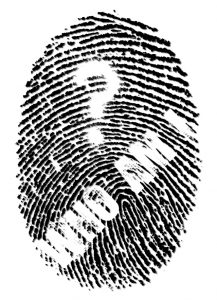
Statements in Concept 3.0 and Concept 3.1 assert: “Through writing, writers come to develop and perform identities in relation to the interests, beliefs, and values of the communities they engage with…The act of writing, then, is not so much about using a particular set of skills as it is about becoming a particular kind of person, about developing a sense of who we are (Adler-Kassner and Wardle 50-51).”
Writing’s link to identity coincides with literacy’s link to identity as presented in my Intro to Literacy Studies course this term. We were assigned a reading from a webtext titled “Literacy Narratives and Identity” by Kevin DePew, Yusuf, and Keith Dorwick. I find the following passage underscores Concept 3.1 which reveals writing’s power to develop and perform identities: “The inherently social nature of personal stories yields another explanation for the transformative power of literacy narratives. Through these accounts, individuals, with each telling of a story, position themselves relationally in reference to characters in the narrative or to listening audiences, transforming their experiences by locating themselves precisely and in nuanced ways within complex and dynamic social systems (cf. Bamberg, 2005; Bucholtz and Hall 2005, Gergen and Gergen 1988) (DePew, Yusuf, and Dorwick).” http://ccdigitalpress.org/book/stories/chapters/daln1/Identity.1.htm
Concept 3.1 also brings out the fact that people may experience difficulties with writing “…not necessarily due to a lack of intelligence or a diminished level of literacy but rather to whether they can see themselves as participants in a particular community (Adler-Kassner and Wardle 51).” Ashley Ross’ literacy narrative drives this point home. Her story titled “Black Literacy in White Education” is featured in the Digital Archive of Literacy Narratives (DALN). Ross positions herself on the outside of American education’s dominant culture. I can clearly see the threshold concept is applicable here.
It is disclosed that Concept 3.2 (on how histories, processes, and identities of writers vary) is troublesome and frustrating for those who want teaching of writing to be uniform with a single approach (Adler-Kassner and Wardle 53). Jessica Wang’s literacy narrative titled “Differences as An Asian American” (featured in the DALN) emphasizes the issue. She recounts her childhood in the home of first-generation Chinese immigrants. American traditions of literacy, including reading bedtime stories, weren’t practiced in the home. Wang ends her narrative with certain statements that reflect Concept 3.2: American traditions don’t apply to all lives and there is no one formula or one path to learning literacy. I’m convinced it’s imperative to veer away from the “one size fits all” type ideology in the teaching of writing.
Adler-Kassner, Linda and Elizabeth Wardle. Naming What We Know: Threshold Concepts of Writing Studies. Boulder: University Press of Colorado, 2016. Print.
DePew, Kevin, Yusuf, and Keith Dorwick. “Literacy Narratives and Identity.” Native Theory and Stories that Speak to Us. The DALN Consortium, Ohio State University, n.d. Web. 10 Sep. 2018.

Hey Arlene,
I love the visual you chose for this post. This chapter of Thresholds was initially something I didn’t have much interest in. I originally thought that identity was inherent in all writing in some form, though I think now it’s much more complex than this. In truth, it doesn’t even come down to narrative. Some would say ideology and identity is only seen through either narrative or a clear statement of the writer’s opinion. I feel like interpretive language is also obvious in revealing a writer’s identity, specifically how they think, how they approach an argument, and how they use rhetoric. I think, like me, if a person really takes the time to think about it they can find tons of forms of identity in writing. And furthermore, in all kinds of genres. It would be a fun activity to view a technical writer’s work and look for identity. Like if we read an instruction manual for a vacuum cleaner, maybe we can interpret different ways through word choice to decipher the writer. Great post!